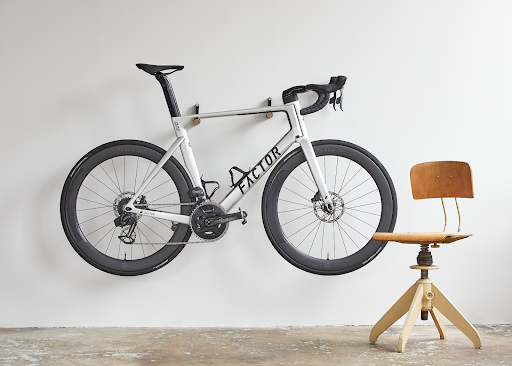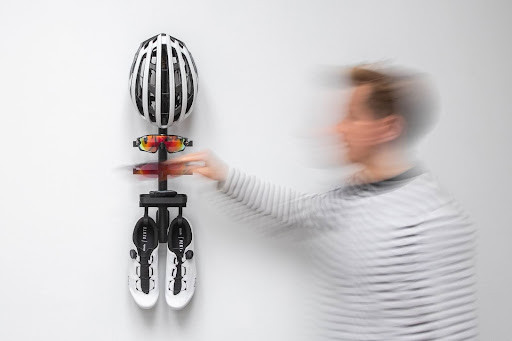Kristian Kroyer didn't start Tons with a business plan in mind; he started it with a problem he wanted to solve. A lifelong cyclist and seasoned product designer, he built a simple indoor bike stand during lockdown, shared it online, and quickly found himself at the center of a fast-growing brand. Today, Tons is rethinking how cycling accessories are made, blending sustainability, modern design, and on-demand manufacturing to reshape an industry that's long been stuck in mass production.

"It was never supposed to be a company," Kroyer says. "But the response made me realize this was filling a gap no one else had." Kroyer's background spans decades in designing consumer goods, from consulting to senior roles in global brands. He's seen firsthand how traditional manufacturing works, and more importantly, where it breaks down.
In most systems, products are designed, mass-produced in remote factories, and pushed to market in huge volumes, regardless of whether anyone wants them. "You have to manufacture 100,000 units without knowing if they're good," Kroyer explains. "And once they're made, you have to sell them, even if they don't work."
Tons is a deliberate break from that model. Every product is made-to-order, with no large inventories, no overproduction, and no excess waste. Built in-house using a hybrid of 3D printing and sustainably sourced wood, each product is printed only when a customer buys it. That core principle of building what's needed, when it's needed, sits at the heart of the brand's ethos.
This approach doesn't just reduce the environmental footprint. It restores control and creativity to the design process. "In traditional mass manufacturing, designers are removed from the product," Kroyer says. "You can't iterate. You can't respond. The design process is broken."
By contrast, Tons products evolve through direct engagement with the customer. The company's best-selling product started as an idea from a customer's comment on social media. Within three weeks, it was live and selling.
That speed and responsiveness simply isn't possible in a mass-manufacturing model. But with the company's digital manufacturing and a made-to-order approach, it has become standard practice. It also means the Tons can afford to test niche ideas and refine them in real time. "We can launch small, see what sticks, and change things without risk," Kroyer says. "It gives us agility that most companies can't dream of."

Tons now offers two primary product categories: indoor cycling stands and gear organizers. The stands support the rise in home cycling setups, particularly during colder months, while the organizers, designed to store and display bikes and gear, have year-round appeal. Together, they reflect what Kroyer calls "life around the bike" - products that blend function, design, and cycling culture in ways that feel intentional.
Every detail, from the bioplastic (made from renewable materials) to the flat-packed packaging, is a statement toward sustainability. And for Kroyer, sustainability is not a marketing angle, it's the baseline. "The biggest problem isn't packaging," he says. "It's overproduction. Building what you haven't sold leads to waste, discounting, or destruction. That's what we avoid entirely."
While Tons is proudly based in Denmark, it is, by nature, a global brand. Its strongest and fastest-growing markets are the U.S. and U.K., and the company is now actively looking to set up manufacturing and fulfillment partners in those regions. The goal is to bring production closer to demand, minimizing costs, delivery times, and carbon footprint, while preserving the flexibility of its model.

In many ways, Tons offers a quiet but radical critique of the bike industry itself. While many brands struggle under the weight of backlogged inventory, misaligned forecasts, and unsold stock, Tons has grown steadily and organically, precisely because it was designed to avoid those pitfalls. It's a model that proves innovation comes from proximity, care, and listening to the rider.
Tons is now seeking like-minded partners and investors who believe in that future. "The industry has been slow to change," Kroyer says. "But we're proving that another way is not only possible, it's better." The brand isn't chasing speed for the sake of growth. It's building for longevity.
And with each product made, packed, and shipped by need, Tons is showing what a more thoughtful future of manufacturing might look like.







